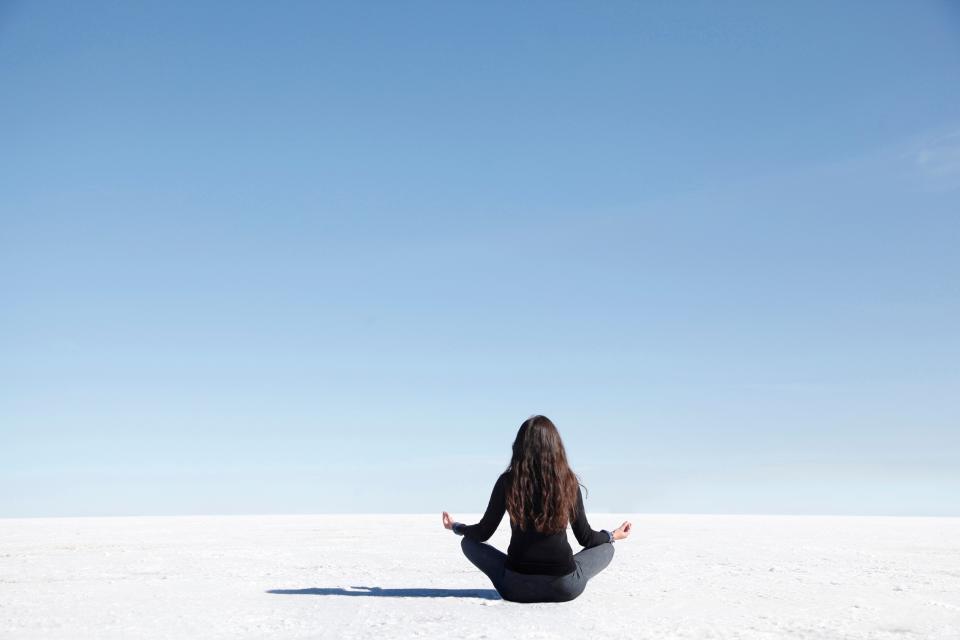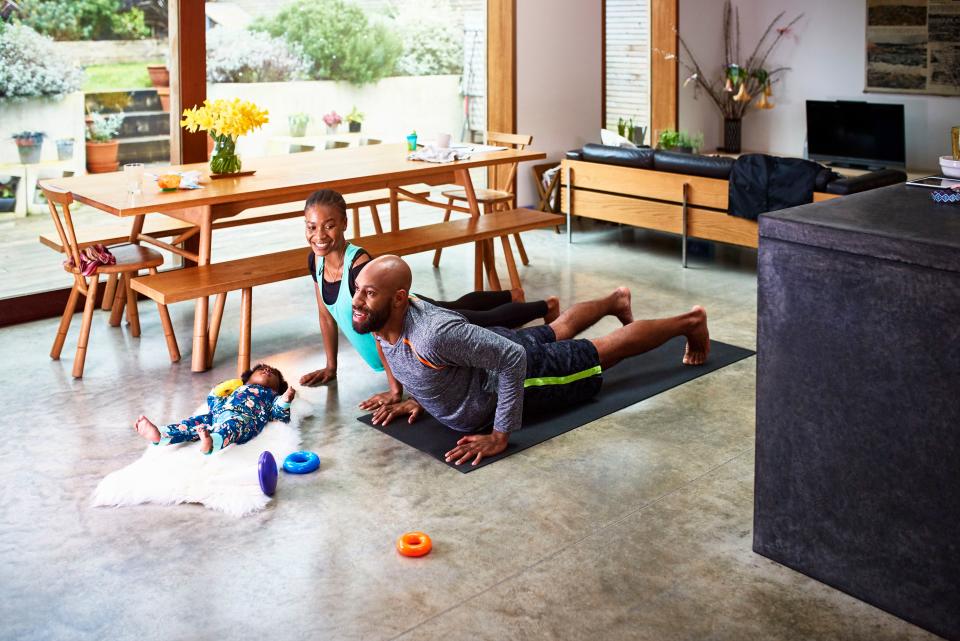13 Ways to Navigate Quarantine Like a Pro
The unexpected public health situation due the outbreak of COVID-19 has most of us quarantined, sheltering in place, or otherwise hunkering down. It’s natural to feel unsettled, but, then again, those of us with a yen for interiors and design can reframe this as an opportunity to indulge in what we’re really all about: nesting. Still, being homebound comes with obvious drawbacks, so if you’re bored, frustrated, anxious (and who isn’t?), or just looking for something to do, stay positive while staying in with these tips for keeping your spirits up and your home in order.
Create a routine
Nearly all of the experts we spoke with emphasized that creating a regular routine is essential to creating a sense of normalcy, “especially when yours has been uprooted,” says productivity expert Paula Rizzo. So set your alarm, make your bed, get dressed, stick to a bedtime. “You need a roadmap, especially when there are so many distractions around you,” adds Rizzo—extra good advice for those working from home. “The more structured your days are, the more purpose and motivation you’ll feel,” agrees Brian Wind, cochair of the American Psychological Association and chief clinical executive at JourneyPure health care centers. It also helps stave off boredom, “which often exacerbates loneliness,” he adds.
Don’t “catastrophize”
It’s natural to feel anxious given the current circumstances, but it’s important to safeguard your mental health. Many therapists offer services by phone or video chat; an online app like Talkspace or Happify can be helpful too. Talking about your concerns or fears—to friends, family, or a professional—really does help. If you start to feel the panic rising, remind yourself not to go to the worst-case scenario. Instead, set time limits on stressful activities like reviewing bank statements, and switch to something you can control in the moment, like cooking a meal or taking a bath, advises Amanda Clayman, financial therapist and Prudential's Financial Wellness Advocate: “anything that prioritizes self care and makes you feel good.”
Limit your media intake

Old Television with Antenna on Wood Table
Photo: Via Getty ImagesIt can be hard to step away from the news when every update feels urgent, but being mindful about media consumption can help you manage emotions and reduce anxiety. “We can’t control what’s happening in the world,” says wellness coach Alexandra Ellis, “but you can control what you allow into your mental space.” Plus, warns relationship expert Destin Pfaff (of Bravo’s The Millionaire Matchmaker), “hearing about isolation all the time can subconsciously amplify it for you.” So when it comes to social media, skip the mindless celebrity banter for supportive online communities that boost your interests and create personal connections.
Get organized
’Tis the season for spring cleaning, so why not pick a spot and deep clean it? Start with the “low-hanging fruit,” advises organization expert Stasia Steele, founder of The Little Details. Purge junk mail, organize the pantry, toss worn-out socks. “What matters most is experiencing a high-success, low-stress activity,” says Steele, who offers online workshops, “so you don’t get burned-out.” Ready to tackle your fridge? Chef Kim Canteenwalla and appliance manufacturer True deliver pro tips for winning at one of the trickiest tasks.
Be kind to yourself
“It sounds simple, but self-care is something a lot of people forget to do,” says Wind, the psychologist. Taking a bath, knitting—whatever it is that helps you chill out—are important activities. “Create a cozy corner, whether it’s a reading corner or workout space, that will signal a sense of calm,” says Katherine King, CEO of Invisible Culture, a consulting firm that promotes cross-cultural training to Fortune 500 companies.
Be mindful

Woman meditation pose facing camera on salt flat
Photo: Michael Duva / Via Getty Images“It may help to remember that this is a special time in history, and starting a journal to record and express your feelings can help,” adds King. Meditation and mindfulness apps—try Headspace, Calm, and Breethe—can be helpful too. All are currently offering free content.
Reach out
Combat loneliness by using apps like Zoom or FaceTime to stay in touch with family and friends. If you’re feeling stranded, they probably are too. “A quarantine is supposed to be physical, not emotional,” says psychiatrist Jared Heathman. “This is a perfect time to call friends and catch up on one another’s lives.”
Manage relationships wisely
With school, work, and socializing happening exclusively at home, even the strongest partner and family bonds are likely to be tested. If you start to see fissures, social worker Jenn Bovee recommends taking the following steps: Make the relationship a priority; identify why you feel disconnected; keep conversations about hot-button issues focused; and use fair fighting guidelines. “Being on top of each other 24-7 can cause a lot of damage,” says Pfaff, the relationship expert. Couples should also set aside alone time, when each individual “can do whatever makes them happy or relaxed.”
Stay active

Baby boy with parents practicing yoga
Photo: Via Getty ImagesHome yoga or HIIT workouts may sound like a breeze, but keeping up with a program is easier said than done. Personal trainer Brian Kiselstein recommends creating a dedicated space for exercise, as “a simple reminder to help hold you accountable.” Then, only incorporate exercises you enjoy. “The best workout plan is the one you actually follow through with,” says Kiselstein. And if things fall apart or get cut short, go easy on yourself. “Remember, it’s still a workout if you’re splitting it up into 10-, or even 5-, minute increments,” says Jaclyn London, head of nutrition and wellness at WW (formerly Weight Watchers).
Take (some) comfort in food
Comfort eating and a glass of wine (or two) are totally permissible right now. “Stress-eating is normal and doesn’t have to undermine your wellness goals,” says London. “So if you’re having a hard day and just want to enjoy some gummy worms, darn it, don’t beat yourself up.” If a reasonable treat boosts your morale, that’s supporting—not ruining—your well-being. Just keep it in moderation.
Get ready to redecorate
No one knows for sure for how long we’ll need to shelter in place, but we’re betting that by the time it’s over, a lot of us will be ready to spruce up our interiors. If you’re itching for new window treatments, rugs, or wallpaper, some interior designers are providing virtual consultations. Or upgrade your bathroom with a civilized, high-tech Sensowash shower-toilet—a combination toilet and bidet—from Duravit. Welcome to the post–toilet paper era: Hoarders have nothing on you.
Set up your workstation right

Man using laptop at home office
Photo: Morsa Images / Getty ImagesWith many of us adjusting to remote work, appropriate home offices are essential for our jobs—and our health. Ergonomics leader Humanscale has launched online consultations to increase comfort and reduce repetitive stress injuries (and mental burnout); Humanscale’s work-from-home guide is a great place to start, too.
Research a trip
Vacations aren’t just fun to take; they’re also exciting to plan. And while you might not be going anywhere soon, “thinking forward to better times is important and powerful,” says travel expert Scott Keyes, who runs Scott’s Cheap Flights. Though many airline fares are remarkably low right now, Keyes advises booking at least three months out, and opting for fares with maximum flexibility.
Originally Appeared on Architectural Digest

